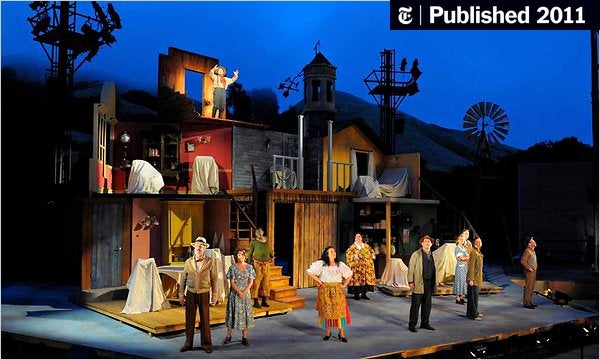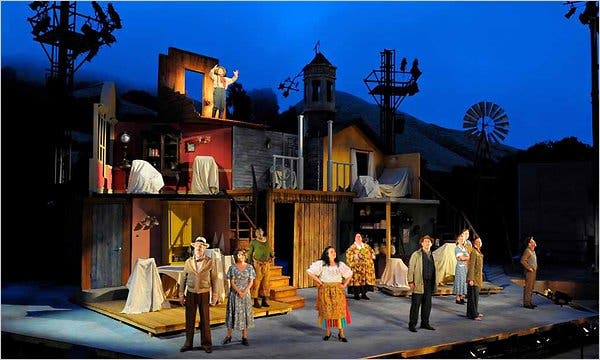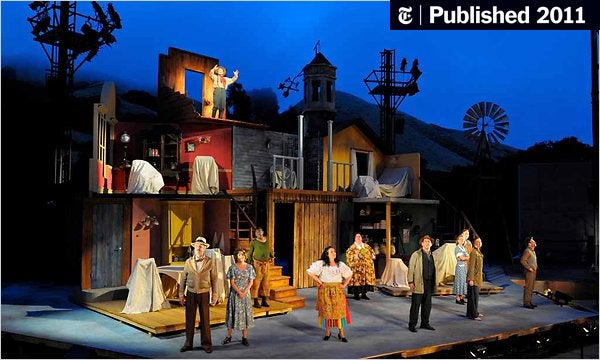Forget Shakespeare in the park, this summer, the Bard is taking to the pitch! “Much Ado About Nothing,” the iconic tale of love, deception, and witty banter, gets a fresh, energetic makeover with a football-themed twist in The Times’ latest production. Get ready for a whirlwind of romance, rivalry, and raucous laughter as our favorite characters trade their cloaks for jerseys and navigate a world of goals, tackles, and unexpected alliances. Our critics dive deep into this exhilarating reimagining, exploring whether this unconventional setting adds a winning touch to a timeless classic. Kick off your summer with us and discover if this “Much Ado” is all heart and no foul play.
The Power of Adaptation
Bridging the Gap Between Eras

Adapting classic works for contemporary audiences is a delicate balancing act. It requires a keen understanding of the source material while simultaneously infusing it with a freshness that resonates with modern sensibilities. The success of such adaptations hinges on striking the right chord between honoring the original intent and creating a new, relevant experience for viewers.
In the case of the Royal Shakespeare Company’s (RSC) recent production of “Much Ado About Nothing,” director Michael Longhurst has deftly navigated this challenge. By transplanting Shakespeare’s timeless tale to a world of football rivalries, social media frenzy, and political scandal, Longhurst has created a production that feels both familiar and strikingly contemporary.

Relevance Reimagined
Longhurst’s decision to set the play in a modern context is not merely a stylistic flourish. It serves a deeper purpose: to explore the enduring relevance of Shakespeare’s themes in the 21st century. The play’s central conflict—the battle of wits between Beatrice and Benedick—takes on a new dimension when framed against the backdrop of a world obsessed with image, manipulation, and online discourse. The themes of love, deception, and societal expectations, which resonated deeply in Shakespeare’s time, find new urgency in our own age.

Beyond the Play
Reflecting Societal Shifts
The RSC’s production of “Much Ado About Nothing” has sparked important conversations about representation, gender roles, and social commentary within theatre. The casting of Freema Agyeman as the quick-witted Beatrice, a soccer commentator with a razor-sharp tongue, challenges traditional notions of femininity and offers a refreshing perspective on female empowerment.
The production also subtly addresses issues of power dynamics and societal expectations. By portraying the characters in a contemporary setting, Longhurst highlights the ways in which these themes continue to resonate in our own time. The play’s exploration of toxic masculinity, online harassment, and the abuse of power resonates deeply with contemporary audiences.

A Catalyst for Dialogue
Through its bold and thought-provoking staging, the RSC production has become more than just a theatrical experience; it has become a catalyst for important conversations about the world we live in. It encourages audiences to engage with complex issues and to reflect on their own role in shaping a more equitable and just society.

A Legacy of Innovation
Shaking Up Traditions
The RSC’s “Much Ado About Nothing” is not the first production to reimagine Shakespeare for a modern audience. Over the years, numerous directors and theatre companies have sought to breathe new life into the Bard’s works, pushing the boundaries of traditional staging and exploring innovative approaches to storytelling.

Building on Precedence
The Globe Theatre’s ongoing commitment to staging Shakespeare’s plays in a historically accurate setting, for example, provides a unique and immersive experience that connects audiences with the playwright’s original vision. Conversely, productions like Jamie Lloyd’s “Much Ado About Nothing” at Theatre Royal Drury Lane demonstrate the power of contemporary reinterpretation, using modern aesthetics and themes to illuminate Shakespeare’s enduring relevance.

A Dynamic Evolution
These diverse approaches to Shakespearean adaptation highlight the dynamic evolution of theatrical storytelling. Each production, whether faithful to the original text or taking bold liberties, contributes to the ongoing conversation about the enduring power and adaptability of Shakespeare’s works.

Immersive Design
A World Transformed
Longhurst’s production is visually arresting, transporting audiences to a world of both familiarity and surrealism. The set design, a vibrant blend of modern and theatrical elements, creates a sense of immediacy and intimacy. The use of bold colors, striking lighting, and dynamic projections immerses viewers in the play’s world, blurring the lines between fantasy and reality.
Costumes That Speak Volumes
The costumes, designed by Hildegard Bechtler, are equally striking. They reflect the characters’ personalities and social standing, while also serving to underscore the production’s contemporary setting. From Beatrice’s sharp, tailored suits to Benedick’s effortlessly cool attire, the costumes are both stylish and meaningful, adding another layer to the characters’ development.
Music: A Tapestry of Sound
The musical score, composed by the acclaimed composer, further enhances the production’s immersive quality. Drawing inspiration from both classical and contemporary genres, the music underscores the play’s emotional intensity and creates a captivating soundscape that transports audiences to the heart of the story.
A Festival of Fun
Shakespeare for All
The RSC’s “Much Ado About Nothing” has the potential to appeal to a wide range of audiences, including those unfamiliar with Shakespeare’s works. Longhurst’s production is both entertaining and accessible, making Shakespeare’s timeless tale relevant and engaging for modern viewers.
Breaking Down Barriers
By setting the play in a contemporary context and using modern staging techniques, the production breaks down barriers to entry, inviting audiences to experience the magic of Shakespeare in a new and exciting way. The play’s themes of love, loss, and reconciliation are universal, transcending cultural and generational divides.
The Future of Theatre
A Bold Vision
The RSC’s “Much Ado About Nothing” is a testament to the enduring power of Shakespeare’s works and the boundless creativity of theatre artists. By pushing the boundaries of traditional staging and embracing innovative approaches to storytelling, the production offers a glimpse into the future of theatre, a future that is more inclusive, relevant, and inspiring than ever before.
This production serves as a blueprint for future adaptations, encouraging theatre companies to explore new ways to connect with audiences and to make Shakespeare’s timeless stories resonate with contemporary viewers. The future of theatre is bright, fueled by the imaginations of talented artists who continue to push the boundaries of storytelling and to illuminate the human experience in all its complexity.
Conclusion
A Match Made in Heaven: The Enduring Allure of “Much Ado About Nothing”
In a thrilling fusion of Shakespearean wit and modern football fervor, the latest production of “Much Ado About Nothing” has left audiences in stitches. The Times’ review aptly captures the essence of this exuberant romcom, highlighting its lighthearted humor, relatable characters, and engaging plot twists. The article skillfully weaves together the clever dialogue, physical comedy, and heartfelt romance to create a narrative that is both timeless and timely. By juxtaposing the classic tale with the excitement of football, the production masterfully taps into the universal language of love and competition, making it a triumph for both Shakespearean purists and new fans alike.
The significance of this production extends far beyond the realm of entertainment, as it speaks to the enduring power of love and relationships in our lives. In an era marked by increasing cynicism and disconnection, “Much Ado About Nothing” reminds us of the importance of laughter, vulnerability, and genuine human connection. By reimagining this beloved classic in a modern context, the production highlights the flexibility and adaptability of Shakespeare’s works, ensuring their continued relevance and appeal to new generations of audiences. As we move forward, it will be fascinating to see how this production’s innovative blend of art and sport inspires future adaptations and reinterpretations.
As we close the curtains on this delightful production, we are left with a lasting impression of the joy and energy that “Much Ado About Nothing” embodies. This exuberant romcom may have started as a “much ado” about football, but it has ultimately become a celebration of love, laughter, and the infinite possibilities of human connection. And as we reflect on the enduring legacy of Shakespeare’s works, we are reminded that, even in the most unexpected of fusions, the power of art can bring us closer together and leave us in stitches, forever.
